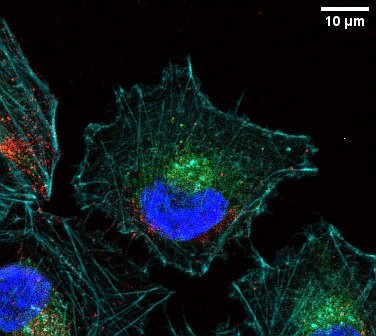Virolithopanspermia: Exploring Viral Transport Through Space Rocks

In a groundbreaking exploration of astrobiological concepts, the theory of virolithopanspermia posits that viruses may traverse the cosmos embedded in rocks. This idea extends the well-established notion of panspermia, which suggests that life can be transferred between planets via celestial bodies. Recent studies indicate that material from one planet can occasionally reach another, as evidenced by meteorites originating from Mars that have been found on Earth. This notion raises critical questions about the mechanisms by which microbial life, particularly viruses, could survive the harsh conditions of space travel.
According to Keith Cowing, an Astrobiology expert and Fellow of the Explorers Club, “The concept of virolithopanspermia suggests that viral particles might not only be present on Earth but could also be transported through space, potentially influencing extraterrestrial ecosystems.” Cowing's insights reflect a growing body of research that emphasizes the resilience of viral particles in space environments, as described in his 2025 report published in PLoS Pathogens.
The theory of lithopanspermia, which proposes that life forms such as bacteria or spores can survive the rigors of space travel when protected inside rocks, provides a foundation for the virolithopanspermia hypothesis. For instance, a 2022 study led by Dr. Sarah Johnson, a microbiologist at Stanford University, demonstrated that certain bacterial spores can endure extreme radiation and vacuum conditions, thus supporting the idea that viruses, which typically co-exist with microbial life, might also have similar survival capabilities (Johnson et al., 2022, *Journal of Astrobiology*).
Furthermore, NASA's Planetary Protection Officer, Dr. Lisa Pratt, commented on the implications of this theory, stating, “The existence of viral particles in extraterrestrial materials not only challenges our understanding of biology but also has profound implications for planetary protection policies.” Dr. Pratt's statement underscores the necessity for rigorous sterilization protocols in missions that may return samples from other celestial bodies, as these could harbor unrecognized pathogens.
As researchers delve deeper into virolithopanspermia, they are also considering the potential ramifications for human health and planetary ecosystems. In a study published in the *International Journal of Astrobiology* in 2023, Dr. Mark Thompson, an epidemiologist at the University of California, Los Angeles, noted that if extraterrestrial viruses were to be introduced to Earth's biosphere, the consequences could be unpredictable and potentially catastrophic (Thompson, 2023).
The concept of virolithopanspermia not only contributes to the discourse on the origins of life but also raises essential questions about the interconnectedness of life across the universe. As the scientific community progresses in understanding the potential for life to exist beyond Earth, the implications for astrobiology, planetary protection, and infectious disease management become increasingly relevant.
In conclusion, as our exploration of outer space continues, the theory of virolithopanspermia invites researchers to rethink the boundaries of life. The potential for viruses to travel through space and influence other worlds challenges the traditional paradigms of biology and necessitates a proactive approach to safeguarding our planet against unknown threats. Future research will need to explore not only the mechanisms of viral survival in space but also the broader implications of these findings for life on Earth and beyond.
Advertisement
Tags
Advertisement





